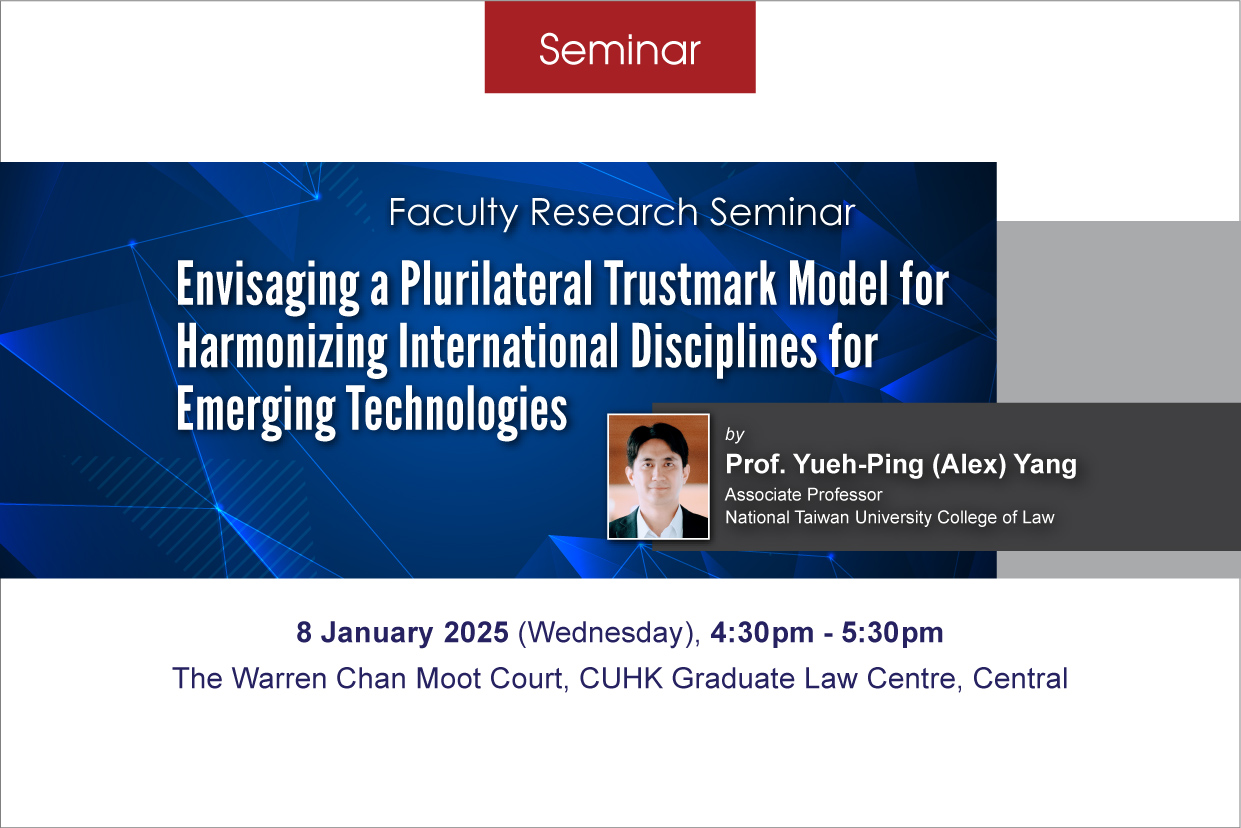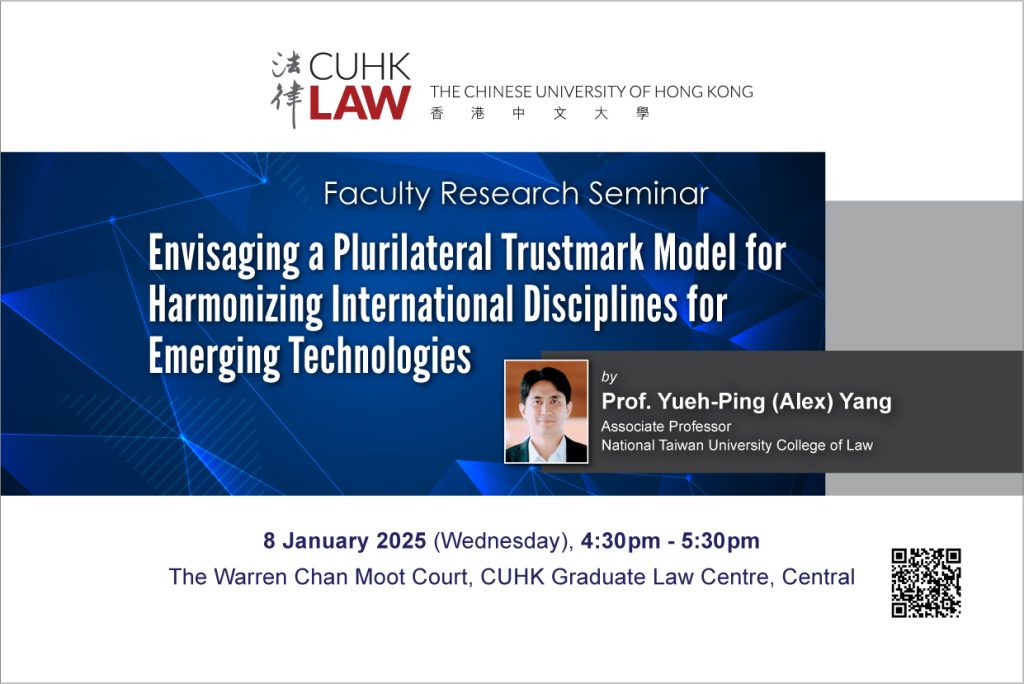International economic laws have faced enough challenges caused by the severe divergence due to geopolitical conflicts, and emerging technologies add further ones. Emerging technologies like artificial intelligence, biometrics, cloud, or data analytics may pose uncontrollable risks and need discipline. However, countries might regulate them for protectionist purposes and thus hinder their development. Harmonizing related domestic regulations might be the solution, but it is often easier said than done.
In this seminar, Prof. Yang will propose a novel model, termed the Plurilateral Trustmark, which is inspired by the Cross-Border Privacy Rule (“CBPR”) System, particularly its innovative Accountability Agent (“AA”) design. Specifically, Prof. Yang applies the gatekeeper theory and argues that like-minded countries may pursue harmonization by (i) co-designating specific private gatekeepers to adopt common standards for certifying emerging technologies and (ii) agreeing upon the common standards for co-designating and disciplining these private gatekeepers. Under this proposal, emerging technologies are more recognized among like-minded countries based on the plurilateral trustmark certified by the recognized gatekeeper(s). It bypasses the need to harmonize domestic laws, which is traditionally challenging. In essence, since harmonizing domestic laws is not easy, perhaps the world may start by harmonizing the standards for certifying gatekeepers.
About the Speaker:
Prof. Yueh-Ping (Alex) Yang received his S.J.D. degree at Harvard Law School in 2017. Before pursuing the degree, he practiced at Jones Day International Law Firm Taipei Office. He is currently an associate professor at the National Taiwan University Department of Law. His research interests include financial regulation, corporate governance, and international economic laws.
Prof. Yang is currently, among other positions, the director of the Asian Center for WTO & International Health Law and Policy and the Co-Chair of WTO’s Chair Programme (Phase III) at the National Taiwan University. He is also the Co-Chair of the Young Comparativist Committee of the American Society of Comparative Law, a member of the Society of International Economic Law, and a member of the International Monetary Law Committee of the International Law Association.


0 Comments